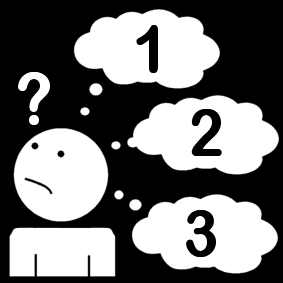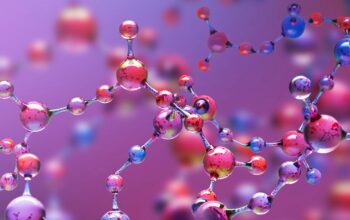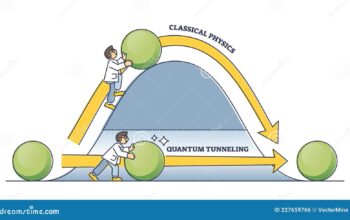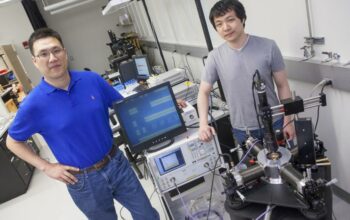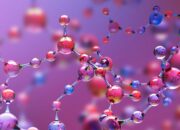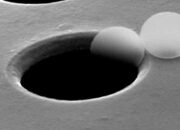In the realm of scientific inquiry, two disciplines often vie for the interest and passion of budding scientists: quantum physics and biochemistry. Each field represents a distinct approach to understanding the universe and the intricate complexities of life itself. This article delves into how one might approach the decision of choosing between these two fascinating domains, highlighting the fundamental nuances and the profound reasons behind their allure.
Firstly, it is crucial to appreciate the foundational differences between quantum physics and biochemistry. Quantum physics delves into the fundamental constituents of matter and energy, elucidating behaviors at the subatomic level. This discipline is characterized by abstract concepts such as wave-particle duality, superposition, and entanglement. On the other hand, biochemistry amalgamates biology and chemistry, focusing on the molecular mechanisms that underlie biological processes. It explores the biochemical pathways that sustain life, including metabolism, DNA replication, and enzyme activity. Understanding these distinctions can provide valuable insights into what one might pursue based on personal interests and inclinations.
One’s inclinations towards experimental versus theoretical work can also play a pivotal role in this decision-making process. Quantum physics often leans toward theoretical frameworks, demanding a strong adeptness in mathematics and abstract reasoning. Theories are formulated and tested through rigorous mathematical derivations and thought experiments. Conversely, biochemistry frequently incorporates experimental design and laboratory work, instructing students on how to manipulate biological materials and perform assays. For those who thrive in laboratory settings and enjoy hands-on experimentation, biochemistry may emerge as the preferred pathway. Conversely, if one finds satisfaction in abstract thought and mathematical modeling, quantum physics could be the more appropriate choice.
Moreover, the philosophical implications of each field might resonate differently with individuals. Quantum physics not only engenders a greater comprehension of the physical universe but also poses existential questions about reality itself. The implications of quantum mechanics extend beyond mere mechanics; they challenge our perception of causality and independence. This field invites a sense of wonder and awe about the nature of existence, and the interconnectedness of all particles in the universe. For some, the allure of engaging with such profound questions may be irresistible.
Biochemistry, while rooted in biological intricacies, brings its own philosophical dimensions. It invites contemplation on the essence of life, the chemical basis of consciousness, and the biochemical substrates that are quintessential to the phenomena of living organisms. Understanding processes at this molecular level can evoke a sense of appreciation for the beauty of life and the delicate balance maintained within biological systems. For those intrigued by the mechanisms of life and evolution, biochemistry promises an enriching exploration.
Another point of consideration is the potential for interdisciplinary overlap. Modern scientific inquiry increasingly emphasizes the intersectionality of various fields. For instance, quantum biology is an emergent field that examines quantum phenomena in the context of biological systems. The implications of quantum mechanics have been postulated to influence processes such as photosynthesis and enzyme catalysis. For an individual who harbors interests in both quantum physics and biochemistry, these intersections could represent a fertile ground for exploration, blending cutting-edge research with the foundational ideas of both disciplines.
Career opportunities and prospects are undoubtedly a crucial aspect of this decision. Quantum physicists are often aligned with academic institutions, research laboratories, or industries focused on technology and materials science. Potential career pathways may involve quantum computing, nanotechnology, or materials engineering. Alternatively, biochemists find themselves within pharmaceuticals, biotechnology companies, or governmental research institutions. Their work may concentrate on drug development, genetic engineering, or environmental biosciences. Evaluating personal career aspirations alongside projected industry trends can illuminate the practical implications of this choice.
Furthermore, one must consider the educational paths associated with these fields. Quantum physics typically necessitates a strong foundation in mathematics and physics. Combined with rigorous coursework, participation in research projects and internships can significantly enhance understanding. A career in biochemistry may require comprehensive knowledge of biology, chemistry, and laboratory techniques. Engaging in experiential learning opportunities—whether in research labs or industry placements—can provide practical skills and shape one’s professional identity.
In conclusion, the conundrum of choosing between quantum physics and biochemistry serves as a microcosm of the broader journey in scientific exploration. Each field offers a unique perspective that contributes to our understanding of the cosmos and the intricacies of life. The decision is deeply personal, guided by individual passions, philosophical inclinations, and career aspirations. Whether drawn to the enchanting complexities of particle behavior or the sublime elegance of biochemical processes, both disciplines promise a profound journey into the essence of reality and existence. The pursuit of knowledge within either realm assures that one will emerge not only as a practitioner of science but as a witness to the marvels of the universe.
